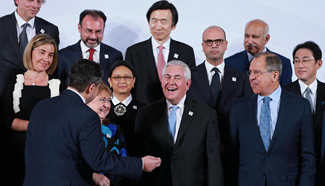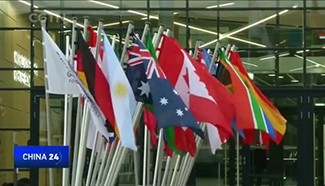NEW YORK, Feb. 16 (Xinhua) -- The United States could do away with a significant amount of financial regulation to expand the real economic activity, said former U.S. Federal Reserve chairman Alan Greenspan here on Thursday.
Economic vigor depends on free capital investment and willingness of corporations to leverage their balance sheets, which have been hurdled by regulation like the Dodd-Frank Act, Greenspan said in a speech before the Economic Club of New York, where he accepted the club's Award for Leadership Excellence.
The Dodd-Frank Act was enacted in 2010 by former U.S. President Barack Obama in response to the 2008 financial crisis.
Under the law, regulators introduced strict capital standards on banks, called for annual stress tests for systemically important banks, and created the Consumer Financial Protection Bureau.
However, U.S. President Donald Trump has already vowed to scale back Dodd-Frank Act, saying the Wall Street reform law is a "disaster" and "horrible" for business vitality.
"Dodd-Frank Act may undergo a major change and it will hopefully cause a fairly important rise in real economic activity," Greenspan said.
The former central banker noted that while eliminating most regulation in the financial system, one thing remains to be done, that is, "to significantly raise the ratio of required regulatory equity capital for financial institutions."
He explained the ratio of net income to equity capital has rarely changed in the past, while the ratio of equity capital in assets has sharply declined from 40 percent to under 10 percent.
Thus, "we could merely require 25 to 30 percent capital so that the financial institutions could have very substantial capital and impossible to get contagious defaults that created all the past financial crises," he said.
"To move into that direction, we can get rid of virtually all of our financial regulation in requirement basically that if you want to invest in something, make the shareholders take the loss, not the American taxpayers," Greenspan said.












